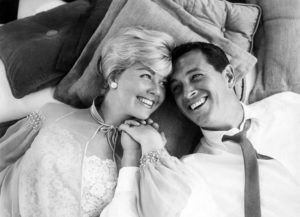Interview: Joe Talbot and Jimmie Fails of The Last Black Man in San Francisco
Posted on June 22, 2019 at 9:13 pm
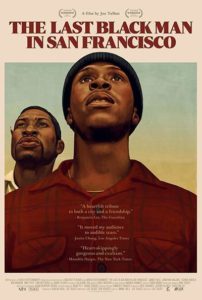
The exquisite lyricism and meditative, poetic images give a grand, elegiac quality to the story about Jimmie’s dream of returning to the grand Victorian mansion that was once his family’s home in a rapidly gentrifying San Francisco that is making it impossible for lower-income and middle class residents, especially non-whites, to continue to live there. Fails, with Jonathan Majors has his character’s closest friend, Montgomery, give deeply moving performances of quiet power, and it is one of my favorite films of the year.
In interviews, Talbot and Fails, lifelong friends, talked about what their home city means to them and why it was as important to them to tell the story of a friendship as it was to present loss and longing for the home.
Something we don’t see very often in movies is such a beautiful portrayal of a friendship so tell me a little bit about why that was something that you really wanted to have front and center in this story?
JF: I think it was important to see two males being gentle with each other and especially for black men because we always feel like you have to be this masculine tough guy or something or you can’t show your feelings to your friend so I think more particularly with black men that was important to show a friendship like that.
What inspired the beautiful, lush images of the film?
JT: I grew up watching a lot of old Hollywood films, pre-code and noir, with a particular interest in films in San Francisco from the 40’s and then obviously into the 70’s with movies like The Conversation. Actually sort of in getting ready for this film I dug for some lesser-known San Francisco movies that I hadn’t seen like Petulia, one that I love.
There is something about San Francisco that I think lives nationally in the imagination of filmgoers because it is a place that has been filmed for a very long time. But Jimmie and I felt like our side of San Francisco didn’t get that same cinematic treatment in film. We spent what feels like a lifetime walking around the streets of San Francisco. It’s strange because a lot of that’s disappearing. Our favorite places that Jimmie and I would go on these walks through the mission and Bernal and along those routes. Some of our favorite spots have been bulldozed and there have been new condos erected in their place and so as much as we wanted to make it a sort of valentine to San Francisco, the beauty of the city both in the architecture and the people, it was also just trying to document what we loved about it before it was all gone.
That obviously had a big impact on our approach to the way we wanted to show it as being sort of a magical place, and that also came from Jimmie and his character. He loved San Francisco very much and I think in his mind particularly when you meet him in the film it’s going to hold a certain romance for him as much as it can feel like it doesn’t love him back.
It was important to show the city as being lush and having these saturated rich colors partly just because that’s to me what the city feels like, what it looks like. The Victorians lend themselves to that and there’s also a regal quality.
When Jimmie and I first started talking about it we would say sometimes it felt like it’s the story of a deposed prince trying to get back the family throne and he’s on this odyssey-like journey. Every so often, he and Mont, as we see them do in the beginning, they take this journey from the outskirts of San Francisco, literally the furthest corner of the furthest point back into the heart of the city, to the old castle that he once lived in. That’s part of why we shot the scene when Jimmie’s yelling at the Segway tour led by Jello Biafra because that was supposed to show how he’s restored to the throne. Jonathan in his brilliance, when he comes out on the balcony and he says to him you look like King Jimmie each time he waved; that was all improvised by Jonathan but he really understood that scene on a deep level and it comes out in improv moments like that.
One of my favorite scenes in the film is when Mont essentially directs the guys who hang out on the corner all the time and essentially act as a counterpoint or Greek chorus in the film. He talks to them as though he’s a director giving actors notes on a scene.
JT: It’s funny you mentioned that because that’s another scene that was entirely improvised. Jonathan is wonderful to work with. He really studied the script and he’d quote it back to me, when I would try to change a line. He’d say, “No, we can’t change that line and this is why we can’t change it.” He really absorbs every word. Everything has so much conviction; every line he reads, and he gets very particular about them. But that was a scene where we felt like it just wasn’t working.
Originally he was supposed to cross the street and perform a magic trick as a distraction and on some level he did essentially the same thing. He took on the energy that was coming to Kofi but he always felt like Montgomery is observing the world as theater; everything is theatrical to him and of course an hour and a half of observations throughout the film all of that comes out then finally and expressed by him in his play.
I think in that moment it was a beautiful idea that Jonathan had that what if he cross the street and he treated them like performers because in a way we all in our own ways are performing something and in that moment it’s a toughness. I think those guys have more layers than what we see in that moment even though the guys were sort of leading the bullying of Kofi all have complicated feelings about that inside. Some of that confusion by them was somewhat genuine because there was no script to look to about what he might be doing.
Jimmie, your character wears pretty much the same clothes throughout the film. What does that hat and shirt tell us about the character?
JF: Joe made it. It grew on me. I didn’t necessarily like it but it was supposed to be reminiscent of a different era a little bit like kind of the old school sort of thing. I was very inspired by Brando in On the Waterfront with the beanie hat, the kind of longshoreman sort of look and there were a lot of longshoreman in San Francisco, black longshoreman, so it was kind of supposed to be like that sort of thing.
The magnificent Victorian house is so important to the film, really a character in the film. What was it like to be inside it?
JF: From the moment you step into that house it’s like everything outside doesn’t even exist. We were trying to find Victorian because we couldn’t use mine (the actual house the story was based on). It took us a while to find the house because all the places we went would be like Victorians on the outside and we go inside it would just look all new and it didn’t have the old sort of Victorian style inside. S o when we found that one and the owner was so nice to let us in.
Did you have a favorite room in the house or a favorite detail?
JF: The library for sure. The books he has in there — it’s insane. He has National Geographics that go back to like 1800 and something, like he literally has it’s insane what he has in there; I think it was like some of the original copies.
It must have been a challenge to take a story that is in part based on the real life of the person who is writing and performing it and then say, “Well, that may have happened but we can’t do it that way in the movie.” How did you navigate that?
JT: It’s interesting because I feel like everything I’ve ever made even going back to our first movies as teenagers came from something that happened in our lives. One of the first movies that Jimmie and I made with my younger brother Nat was about two friends who wind up in the suburbs for the weekend and they are lured out to the suburbs by two girls that they meet and I’m in it and Jimmie’s in it and it starts to go very wrong very fast.
It’s about two city kids who were very weirded out by the suburbs and we end up fleeing back to San Francisco in the end but that was basically something that had happened to me. So in a way it’s all natural that we would be talking about Jimmie’s life as we often did or with my life and then that would somehow end up being turned into a movie.
I think for this in particular some of the stories are pulled directly from Jimmie’s life; the scene with his mother is something that actually happened when he saw her on the bus after having not seen her for a long time and the character Mike Epps plays, Bobby, was a guy who drove off with the car that Jimmie and his dad was living in, they didn’t really acknowledge it.
Through a collective imagination, part of the film was not just retelling things that had actually happened but imagining different ways to tell them or to elaborate on them so thinking, “What if this guy drove off with Jimmie’s car never really acknowledged it even years later and still sort of said that he was just borrowing it and even if he picked Jimmy up and drove around town?” It was funny to think, “Who could do that so well?” Mike Epps is one of the funniest people in the world.
Even for the scene with Jimmie and his mom, it was like wanting to shoot that in a way that both felt honest and real. That was his real mother playing his mother in the movie. Part of what’s important about that is they look so much alike, he’s really his mother’s son in some ways, but also wanting to show in the way we shot them like that, shot reverse shot, a very stylized look, that there’s a distance between them as the world is sort of whirring past them both.
So I think that was actually from me and Jimmie as kids that first bonded on telling stories to each other, that was one of the most fun parts of this, how to take these real events and spin them into something that was partially fiction and partially true.
Jimmie always says for him every scene was emotionally true, even if the events and the characters were changed.
What has been the most gratifying of the reactions that you got from the film?
JF: Just people saying, “Thank you for being vulnerable.” It’s the best thing I could hear. People say a lot of beautiful things about the cinematography, about the actual art of it but when people thank me for that it means everything. It was hard for me to put myself out there, so that means everything to me.

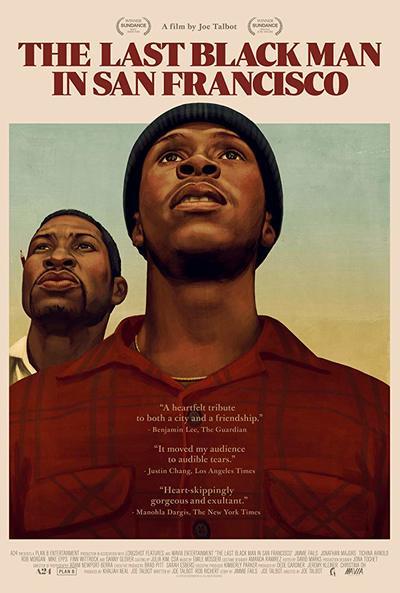
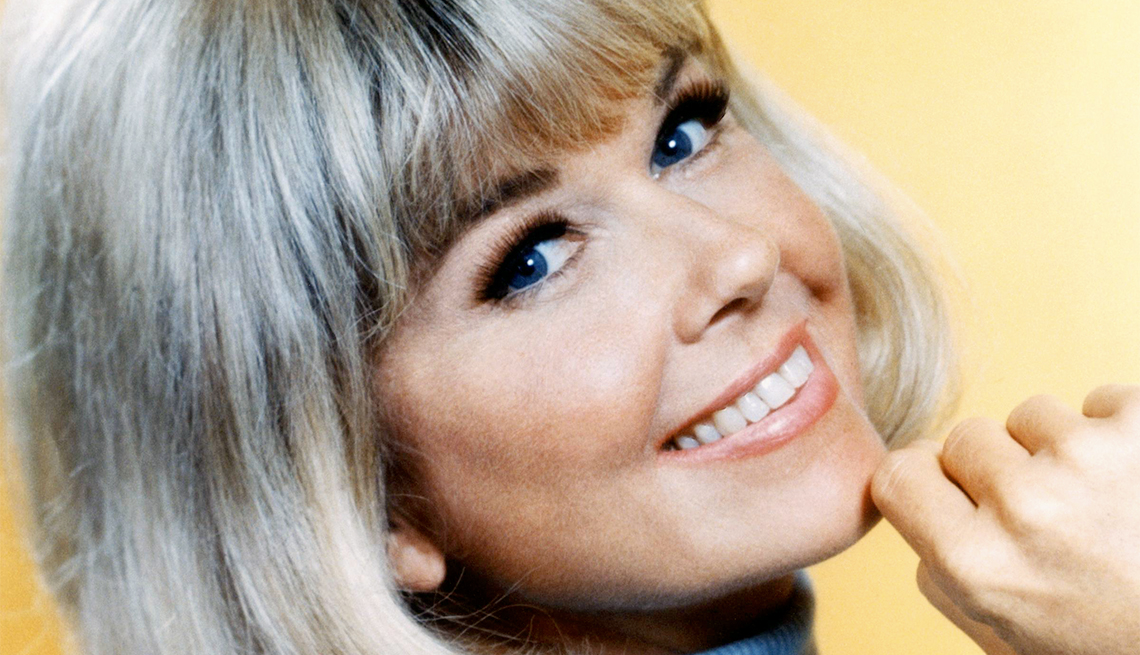
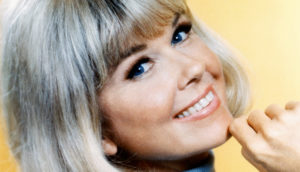 We mourn the loss of one of Hollywood’s brightest lights, Doris Day. Sometimes dismissed as the perpetually virginal star of silly comedies, Day was in fact one of the most versatile performers in history. Like Frank Sinatra and Bing Crosby, she was at the top of her field in music, comedy, and drama. More important, even in the late 50’s to early 60’s, one of the most repressive times in American history for women just before the explosion of the feminist movement, she consistently played independent professional women who stood up for themselves and others, even in her frothiest comedies. And she was really quite sexy. Of the three movies she made with Rock Hudson that made their pairing iconic (and their friendship enduring), in one of them she was interrupted just as she was about to seduce him, in another she actually slept with him and became pregnant (when intoxicated), and in the third they were married throughout the film. As
We mourn the loss of one of Hollywood’s brightest lights, Doris Day. Sometimes dismissed as the perpetually virginal star of silly comedies, Day was in fact one of the most versatile performers in history. Like Frank Sinatra and Bing Crosby, she was at the top of her field in music, comedy, and drama. More important, even in the late 50’s to early 60’s, one of the most repressive times in American history for women just before the explosion of the feminist movement, she consistently played independent professional women who stood up for themselves and others, even in her frothiest comedies. And she was really quite sexy. Of the three movies she made with Rock Hudson that made their pairing iconic (and their friendship enduring), in one of them she was interrupted just as she was about to seduce him, in another she actually slept with him and became pregnant (when intoxicated), and in the third they were married throughout the film. As 